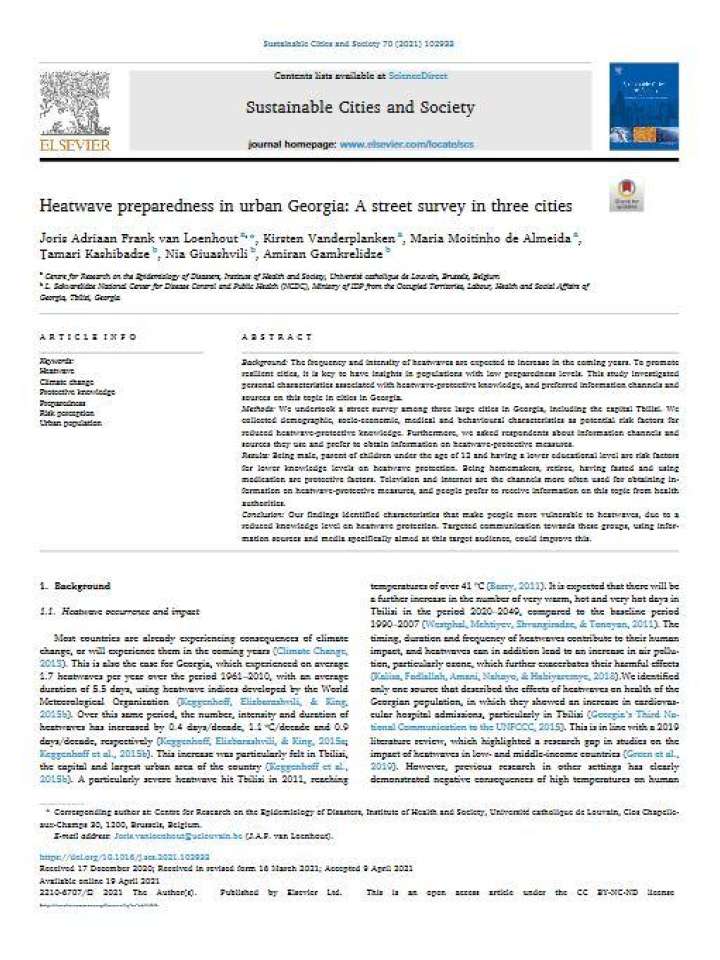Heatwave preparedness in urban Georgia: A street survey in three cities
This study investigated personal characteristics associated with heatwave-protective knowledge, and preferred information channels and sources on this topic in cities in Georgia. The frequency and intensity of heatwaves are expected to increase in the coming years. To promote resilient cities, it is key to have insights into populations with low preparedness levels. The authors undertook a street survey among three large cities in Georgia, including the capital Tbilisi. The researchers collected demographic, socio-economic, medical and behavioural characteristics as potential risk factors for reduced heatwave-protective knowledge.
The paper's findings offer important insights in risk factors for climate injustice in Georgia, which was expressed in this study as having a reduced knowledge level on heatwave protection. This particularly concerns those with low education, those with children under the age of 12, and men. However, demographic, socio-economic and cultural characteristics are rarely considered in heat emergency planning. Targeted communication towards these groups, using information sources and media specifically aimed at the target audience in question, would be a good approach to improve knowledge levels and hence preparedness of these vulnerable groups. Also, according to the authors, actively involving representatives of these groups in adaptation strategies is an important step forward in reducing climate injustice. It would further be of interest to observe potential resilience mechanisms taking place during a heatwave, which would be of interest for a follow-up study.
Explore further
